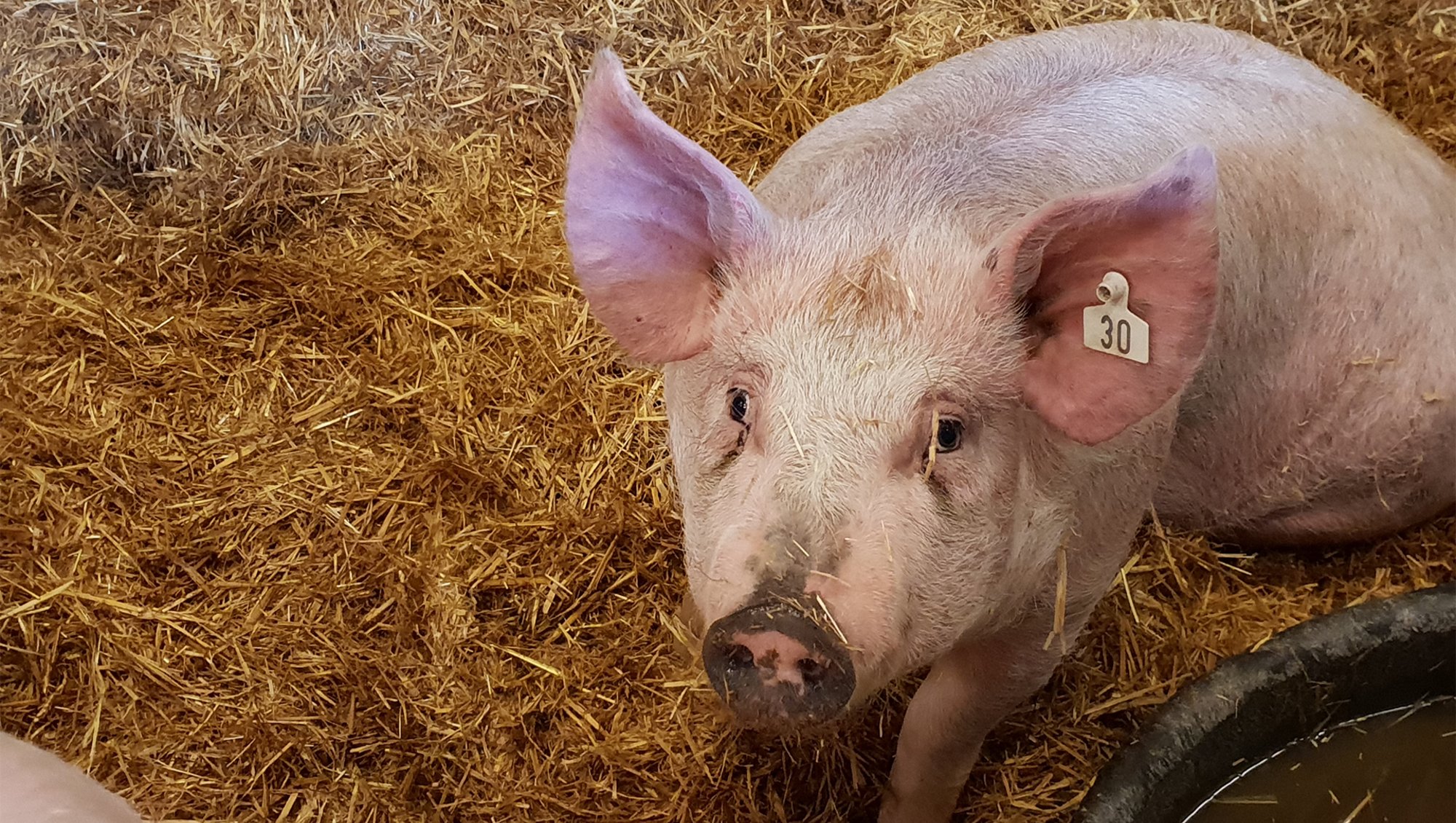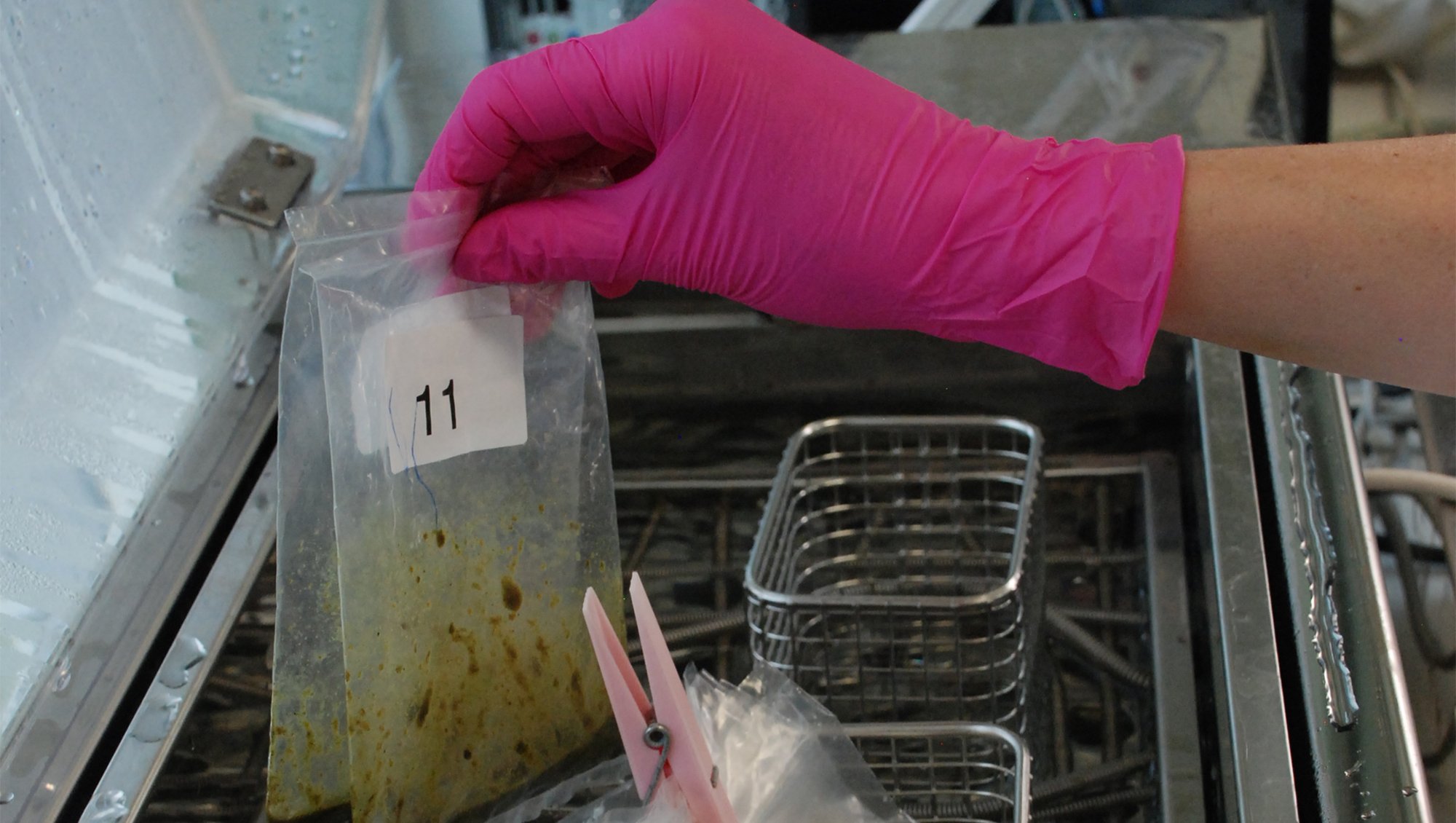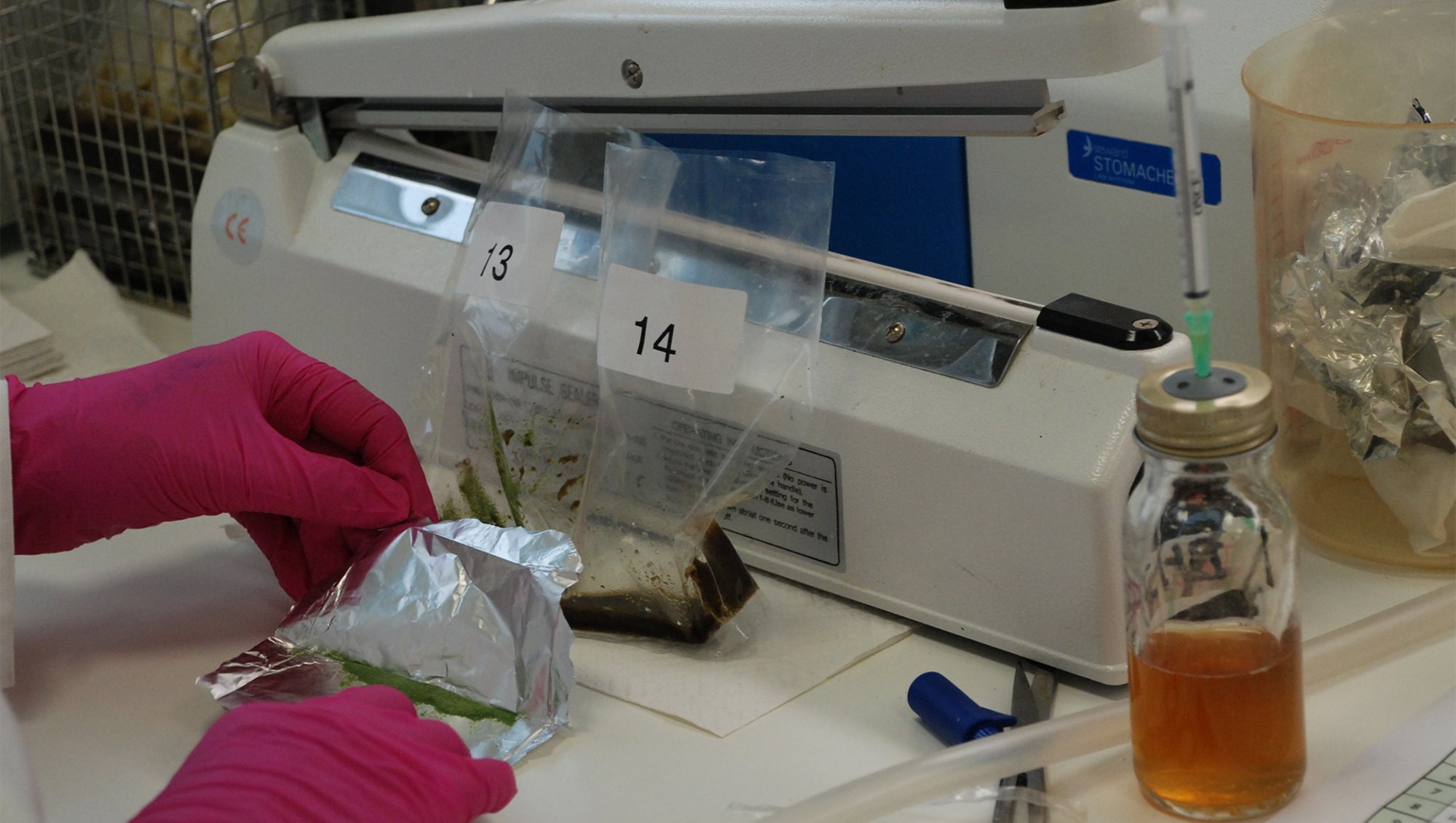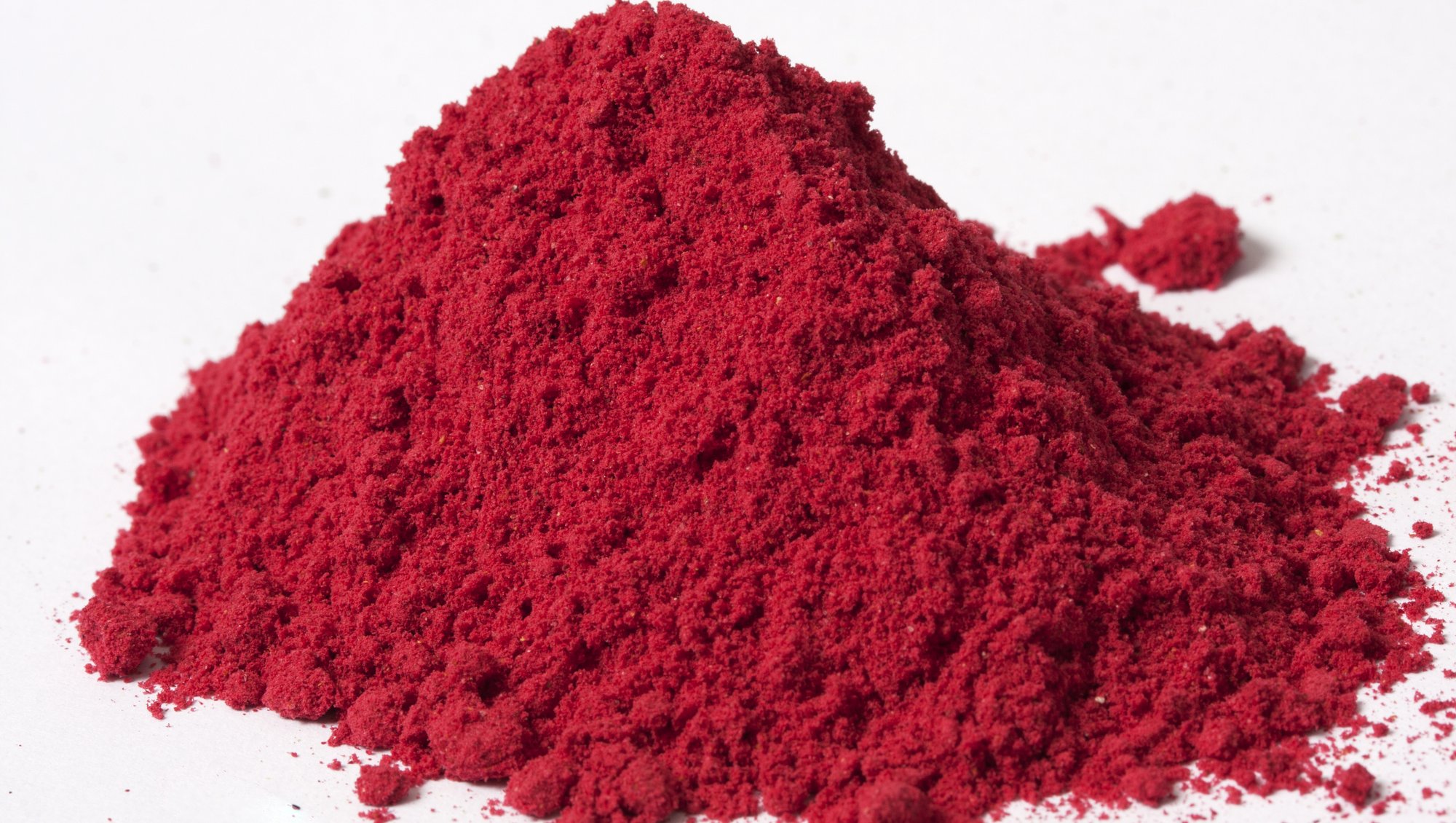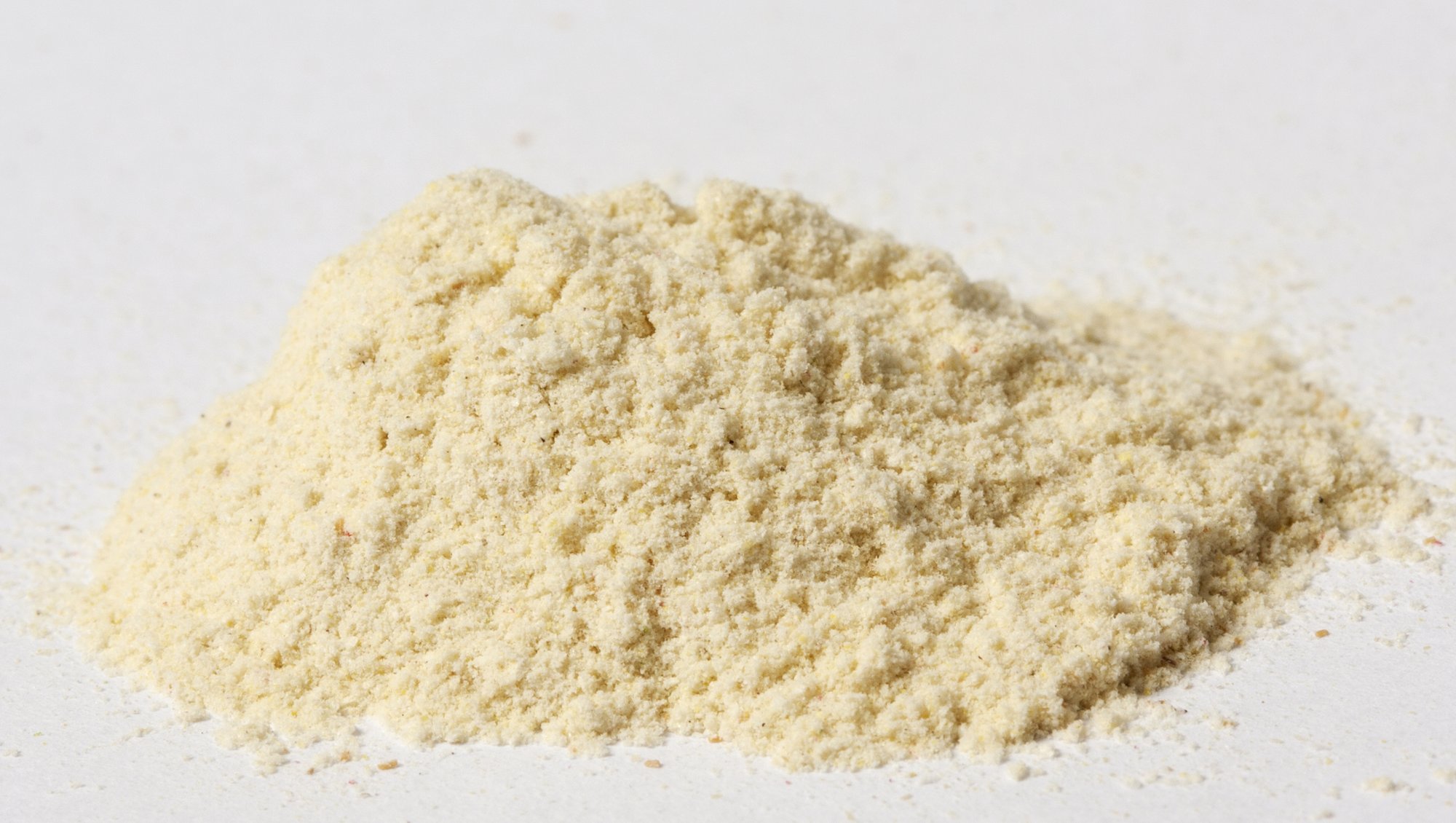MAFFRA II
MAFFRA II
- Plants as antibacterial feed for preventing diarrhoea in piglets
Weaning diarrhoea in piglets constitutes a serious animal welfare and economic problem in the Danish pig production, which traditionally is solved using antibiotics, zinc oxide, and synthetic organic acids. Almost half of the antibiotics for pigs are used for weaning pigs, and about 94% of the used medical zinc oxide ends up in the manure.
The problem with the development of bacterial resistance and environmental consequences of the accumulation of zinc in soil has led to political demands for the reduction of antibiotics and phasing out of medical zinc in the EU.
In general, there is a strong interest in finding 'natural' alternatives to antibiotics, zinc oxide and organic acids to prevent diarrhoea in pigs.
Purpose of the project
The purpose of the Organic RDD project MAFFRA II is to refine and establish final proof of effect of a natural, plant-based, antimicrobial feed additive for piglets that prevents weaning diarrhoea and that can reduce/replace the use of antibiotics and zinc. The project will document that the very promising research results obtained by using antimicrobial plant cocktails in the pilot study (MAFFRA) can also be obtained on a larger scale and be used in practical organic pig production.
The goal is to obtain an improved intestinal health and reduced diarrhoea. The project optimizes and scales up from the production of raw materials to finished products in the selected plant products and "side streams". Finally, the economics regarding the use of the new multi-component feed additive in pig production will be documented.
MAFFRA II will contribute to green sustainability through new bioactive crops and utilization of residues from berries and garlic/ramsons.
The feed additive is expected to be an alternative to antibiotics and medical zinc, ensure less diarrhoea and less mortality in organic pig production.
Project period: 2019-2021
Results and Recommendations
Plant-Based Feedstuffs Can Prevent Weaning Diarrhea in Piglets
Traditionally, the problem of weaning diarrhea in piglets is addressed using antibiotics, zinc oxide, and synthetic organic acids. This leads to issues with bacterial resistance and has negative environmental consequences, such as the accumulation of zinc in agricultural soils.
The project has documented and demonstrated that it is possible to prevent weaning diarrhea and reduce/replace the use of antibiotics and zinc by using a plant-based feedstuff made from dried powder of garlic and low pH fruits or berries, which together provides an antibacterial effect.
Garlic Provides the Necessary Allicin
The project has shown that organic garlic bulbs can be processed into a dry powder that can be added to regular pig feed. When the feed is moistened, it produces the antibacterial compound allicin. The project also demonstrated that pomace, the press residue from organic apple juice production or freeze-dried blackcurrant powder from whole berries, combined with garlic, provides a synergistically stronger antibacterial effect.
Furthermore, the importance of effective processing methods, such as slicing garlic before drying and the impact of drying methods (freeze-drying or low-temperature oven drying) on the allicin content, has been demonstrated. For apple press residues, managing the risk of cyanide formation from seeds is crucial during the process.
Which Varieties and Harvest Times Yield the Highest Output?
Several garlic varieties were cultivated to determine which varieties and harvest times yield the highest output and best allicin content. The results showed significant differences in concentrations among different garlic varieties, with a handful of varieties producing high content and good yields.
Wild garlic (Ramson bulbs) was also tested. Like garlic, wild garlic forms allicin, and in the MAFFRA I project, laboratory and pig trials showed that wild garlic powder has strong antibacterial properties and prevents weaning diarrhea in piglets. In MAFFRA II, it was shown that the differences in allicin content among wild garlic populations were relatively small, but the antibacterial effect of wild garlic was nearly twice that of garlic at the same allicin concentration. Therefore, wild garlic has a unique antibacterial potential. Currently, there is no commercial production of wild garlic, so garlic remains the best supply option for antibacterial effects via allicin.
Using multi-component antibacterial plant cocktails based on allicin-containing garlic along with acidic fruits and berries is expected to inhibit or reduce the risk of the development of bacterial resistance.
Significance of Results - Practical Implementation
The new knowledge from the project provides farmers with a new tool to combat weaning diarrhea in organic piglets as an alternative to antibiotics and medicinal zinc. Conventional weaned piglets, including the "raised without antibiotics" (RWA) type, are also expected to benefit from using these antibacterial feedstuffs.
Agricultural consultants need to collaborate with farmers to determine how and when it is relevant to use the plant-based antibacterial feedstuff and, in collaboration with the industry, to find/compose products with similar content and effects to those tested in the project.
On the plant product side, it will be relevant to further investigate how the cost of an antibacterial plant cocktail product can be reduced, for example, through cheaper drying methods for the plant material, or if models without the expensive drying process can be developed to make the potential of antibacterial plants for feed easier to implement.
Within pig production, it will be interesting to further understand what dosage of the plant cocktail is necessary relative to the size of the infection problem and the specific, concrete situation, and whether the inhibitory effect is equally strong against both pathogenic types F18 and F4 E. coli.
It will also be very interesting to investigate how various other methods/technologies to promote health and prevent diarrhea can interact with these plant cocktails to provide better and possibly cheaper protection.
Project leader

Martin Jensen, senior researcher,
Department og Food Science, Aarhus University
Phone: 87158331 / cell: 40594286
Martin.Jensen@food.au.dk
